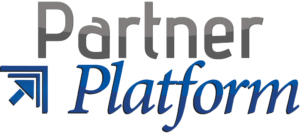When it comes to accounting, many agency owners want to throw up their hands. From accounting software to best practices for managing your book of business, it seems the world of insurance accounting is simultaneously critical and complex.
It doesn’t have to be this way. We sat down with two authorities in the insurance accounting field, asking everything from “What’s the best accounting software for insurance agents?” to “How can owners avoid accounting issues?”
Our experts today are SIS Director of Product Management Bryce Lee and CPA and Partner at Donovan, Sullivan, and Ryan, Chris Ryan. With over 25 years combined experience, Bryce and Chris have a lot to share about how to manage finances in the industry.
—-
When it comes to accounting, what are some common questions you hear from clients?
 Chris: At Donovan, Sullivan, and Ryan, we discovered the independent agency market needs someone who understands their nuances and speaks their language. Over the past 25 years, we’ve focused on specializing in serving independent agencies and found there are four main problem areas for most agencies. What we hear about most are issues with management and accounting system efficiency, how to streamline administrative tasks, help with staffing, and questions around agency perpetuation. We’re usually dealing directly with the owner in these areas who, especially in smaller agencies, is acting as the accountant as well.
Chris: At Donovan, Sullivan, and Ryan, we discovered the independent agency market needs someone who understands their nuances and speaks their language. Over the past 25 years, we’ve focused on specializing in serving independent agencies and found there are four main problem areas for most agencies. What we hear about most are issues with management and accounting system efficiency, how to streamline administrative tasks, help with staffing, and questions around agency perpetuation. We’re usually dealing directly with the owner in these areas who, especially in smaller agencies, is acting as the accountant as well.
Bryce: We’ve worked with agencies ranging in size, specialization, and experience from all across the country. The most common questions I hear are around the Client Ledger. Often, clients are looking for advanced reporting or help with reconciling accounts. For commercial agencies, we get questions around Direct Bill Commission download and how it synchs with the Partner Platform system.
What issues do your clients face and how do they manage them?
Bryce: Usually, calls we get are about fixing a mistake and how to correct it in the Partner Platform system. We also hear from agencies who need to find a transaction to correct a book imbalance. The third most common is ensuring they have their systems set to correctly pay commissions automatically. It’s minor things as they get used to the system, and then they’re off and running.
Chris: We also get calls about how to fix an issue or how to use a system. We tackle this by providing training to clients on their specific systems and offer monthly reconciliations to avoid errors that could cause long-term issues.
We also work with agencies to handle administrative tasks in a low-cost manner. Most of the issues are around bill processing. Agencies use direct bill whenever they can, but it’s not always an option. We provide three different levels of monthly accounting support to free up time for owners, allowing them to focus on growing their business without having to hire an internal accountant.
Let’s talk accounting software for insurance agents. What do you see clients using, and why do they select those tools?
Bryce: There’s not a lot of accounting tools out there. They either use QuickBooks or Peachtree, or an integrated accounting system. Some may go for a third-party payroll company as well. Most of our clients go for names they know, or a tool they know is made for accounting or payroll specifically. What they may not know is that an integrated system can do all those things without needing to buy something new.
Chris: In many cases, we see an agency using a management software with an accounting element, but they’re not using that accounting element. When asked why we hear, “it just didn’t make sense,” “it’s confusing,” “it’s not user-friendly” and so on. It seems owners learn the management system side and by the time they get to the accounting, they’re burnt out on learning. So, they turn to QuickBooks as something more intuitive with a faster learning curve. It’s a shame because the integrated accounting systems can save them a lot of time, money, and energy.
What are the pros of integrated accounting versus an external system like QuickBooks?
Chris: Though the ease of QuickBooks is appealing, we always advise clients to use the integrated accounting systems. With integrated accounting, agencies can take advantage of the synergies of the software. If they go over to QuickBooks, there’s duplication of efforts and extra work. They’re underutilizing the agency software (that they’re paying for). We cringe when see agencies investing time and money into these robust systems and then putting everything into QuickBooks. It’s more effort, and it doesn’t need to be like that.
Bryce: Though we don’t recommend an agency use a general accounting system, we see clients who use them to manage their business. Reporting is a huge deal. The amount of data that flows from a management system to QuickBooks simply isn’t sufficient for an in-depth analysis of the agency’s financials.
Agencies tend to have more than one bank account, and often several different accounts need to be managed. It’s messy to manage multiple accounts in QuickBooks and usually requires multiple subscriptions. Partner Platform’s accounting system is designed to handle multiple accounts, and everything is contained in one system. General accounting transactions are managed much better when in a single system. Anytime a user must jump from one system to another, it creates more steps and a separate user experience.
How has integrated accounting in the Partner Platform benefitted your clients?
Bryce: Accuracy and efficiency are the two significant benefits we hear from our clients. Commissions management is one piece we hear about most often. Our direct bill commission allows agencies to set it up once and never have to worry if commissions are running again. And, our system allows for import of direct bill commissions, even if the carriers don’t offer direct bill commission download. That alone can save an agency dozens of hours a month.
 Chris: We found Partner Platform’s accounting is easier to understand for most of our clients. It’s user-friendly and integrates really well. In many cases, clients who convert to Partner Platform abandon QuickBooks for the Partner Platform accounting system because it makes more sense to them. That’s a huge help because it streamlines processes, reduces errors, and makes the potential headache of accounting that much easier for our clients. That translates into smoother conversations down the line, especially when it comes time to evaluate next steps in selling or passing on an agency.
Chris: We found Partner Platform’s accounting is easier to understand for most of our clients. It’s user-friendly and integrates really well. In many cases, clients who convert to Partner Platform abandon QuickBooks for the Partner Platform accounting system because it makes more sense to them. That’s a huge help because it streamlines processes, reduces errors, and makes the potential headache of accounting that much easier for our clients. That translates into smoother conversations down the line, especially when it comes time to evaluate next steps in selling or passing on an agency.
What’s one final piece of advice you’d give to agency owners?
Chris: Investment in an management system with integrated accounting is an essential part of a well-managed agency, and a well-managed agency acts as an annuity for its owners. Agency owners need to exploit the technology available to them, utilizing it to automate as many agency operations as possible so they can focus on growing their business.
An owner should focus on making management decisions to get the highest possible sale price rather than getting dragged down in daily administrative details. Leveraging technology to its fullest capabilities is critical. All agencies should take advantage of software that integrates, streamlines, and has cross-referencing capabilities as much as possible.
Bryce: Always stay involved in your bookkeeping process and understand your numbers. Financial management is key to your business’ success. Too often, we hear horror stories of a bookkeeper mishandling accounts, leaving the agency and owner to clean up a mess they don’t understand. It’s too dangerous not to know what’s going on in your agency, and an integrated system ensures you have a handle on all the data.
—–
Want to know more? Hear directly from Partner Platform clients on their experiences with integrated accounting on our Client Stories page and get in touch with us to find out how to sync your systems today.



